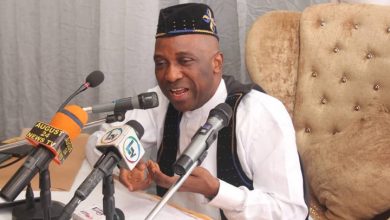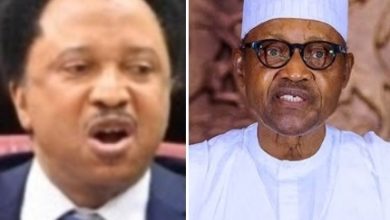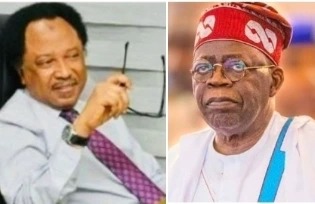Today's Headlines: Tinubu's Subsidy Removal Policy Unpopular, Masterstroke — Senator Nwaogu; Atiku Suffers Setback In US Court

Tinubu’s subsidy removal policy unpopular, but masterstroke —Senator Nwaogu
Photo Credit: The Sun Nigeria
Bold, courageous and grassroots politician and woman leader, Senator Nkechi Nwaogu was former Abia Central Federal Constituency representative at the red chambers. She was chairman, Senate Committee on Oil and Gas Resources; chairman, Senate Committee on Banking, Insurance and Other Related Financial Matters. She has also been the chairman, Governing Council, University of Calabar.
In this encounter with Sunday Sun, the thorough-bred politician speaks on the Tinubu presidency, fuel subsidy removal, challenges of women in politics, the high turnover of NASS members, and the Alex Otti leadership style in Abia State, among other national issues. Excerpt:
You have not spoken since the inauguration of Senator Bola Tinubu as president. Why? And how will you assess the journey, so far, the few policies rolled out in this close to two months of his tenure?
Atiku suffers setback in US court
Photo Credit: The Nation Nigeria
The presidential candidate of the Peoples Democratic Party (PDP), former Vice President Atiku Abubakar, has suffered a legal blow in the United States where he had gone to seek information in his struggle for the seat of power.
His bid to subpoena the Chicago State University, United States ahead of the judgment of the Presidential Election Tribunal was rejected by a Circuit Court of Cook County, Illinois County, United States.
The court dismissed the lawsuit filed by the PDP candidate to get access to President Bola Tinubu’s confidential educational records at Chicago State University.
Photo Credit: Google
President Tinubu Needs A Strong Economic Management Team To Actualize Reforms – Dan Kunle
Photo Credit: Leadership
President Bola Tinubu has undertaken a few economic reforms since he was sworn-in. Can you provide an overview of the economic reforms being implemented and their impact on the economy?
A lot has happened in the last two months in the domestic economy of Nigeria, and I am the type that watches before talking because I want to get the momentum gradually. I have watched in the last two months the sensitivity of our economy, both the policies reeled out by the new government.
I know the burning issues of petroleum deregulation, and I know the burning issue pertaining to the foreign exchange unification, that is dollar, naira unification, that we should stop having window one, two, or three windows in the market when managing our forex.
These issues are not of today’s making. All these issues are the active ingredients that have caused a lot of distortion in our domestic economic management since 1973. Nigerian economic historians will tell you that from Independence in 1963, 1970, we are still spending pounds sterling from the UK. Nigeria’s currency from 1962, 1970 was still Pounds Sterling. Nigerians didn’t feel anything that time because they were just spending Pounds Sterling. And that is the colonial master’s currency, and in 1973, we changed to Naira. Immediately we changed, there was an exchange rate differential. The margin was very small, but just to show that look, we are not equal to Britain, our economy is not as strong as them, so we weren’t exporting enough, so we were exporting crude oil, and we had a boom. In 1973, 1974, we earned so much money, and then 1974, the then government declared Udoji Award to everybody, the income of everybody in Nigeria was increased suddenly, and then we also embarked on a subsidy regime from that 1973/74 by setting up an institution called Petroleum Equalization Fund to sell petrol at the same price across the country, even if the petrol is supposed to sell for 20 kobo in Lagos and sell for 50 kobo in Maiduguri, because of the transportation cost, who bore the difference? Who will pay the difference, so it became the federal government’s liability since that time till today, that gap of equalization became so wide.
Subsidy removal: Makinde rolls out palliatives, unveils ‘SAfER’ package for Oyo residents
Photo Credit: The Cable
Seyi Makinde, governor of Oyo, has rolled out palliative measures to cushion the impact of the petrol subsidy removal and the rising cost of living on the residents of the state.
In a statewide broadcast on Saturday night, Makinde shared what he called “short-term plans which will play a huge role in alleting the effects of the removal of fuel subsidy and the resultant economic difficulties being faced by our people”.
He said he has given directives that the number of government buses on various routes in Ibadan, the capital city, should be increased while commuters would enjoy the reduced fares.
The governor said he has made “wide consultations” and taken decisions that will benefit the people of the state, adding that the government decided to use “economic packages to stimulate our economy and bring about sustainable development”.
Ngongwrite (
)





